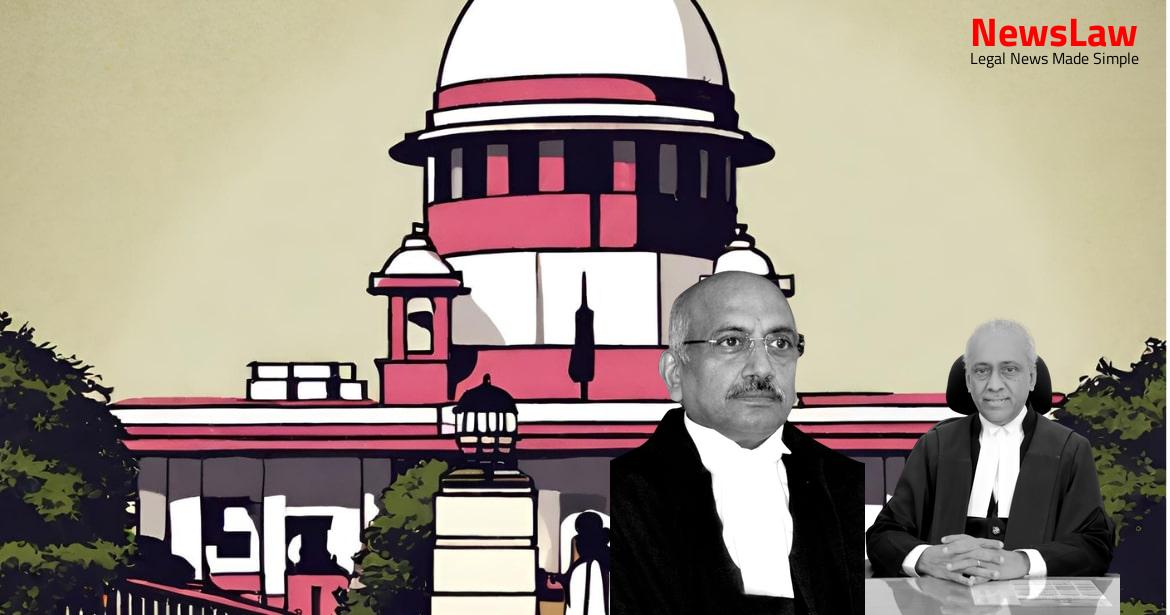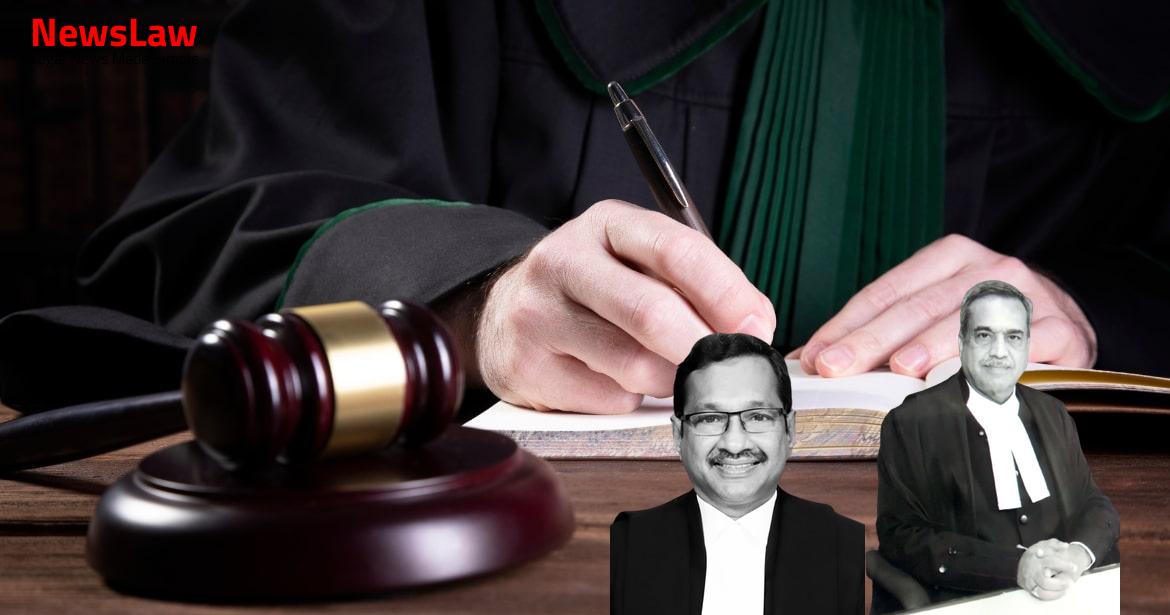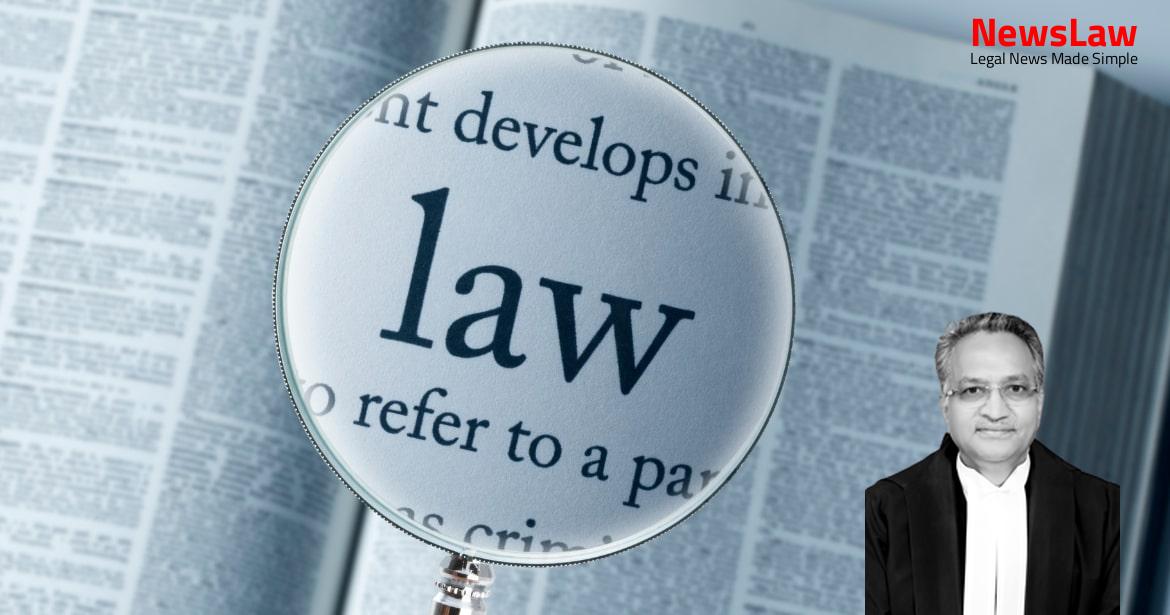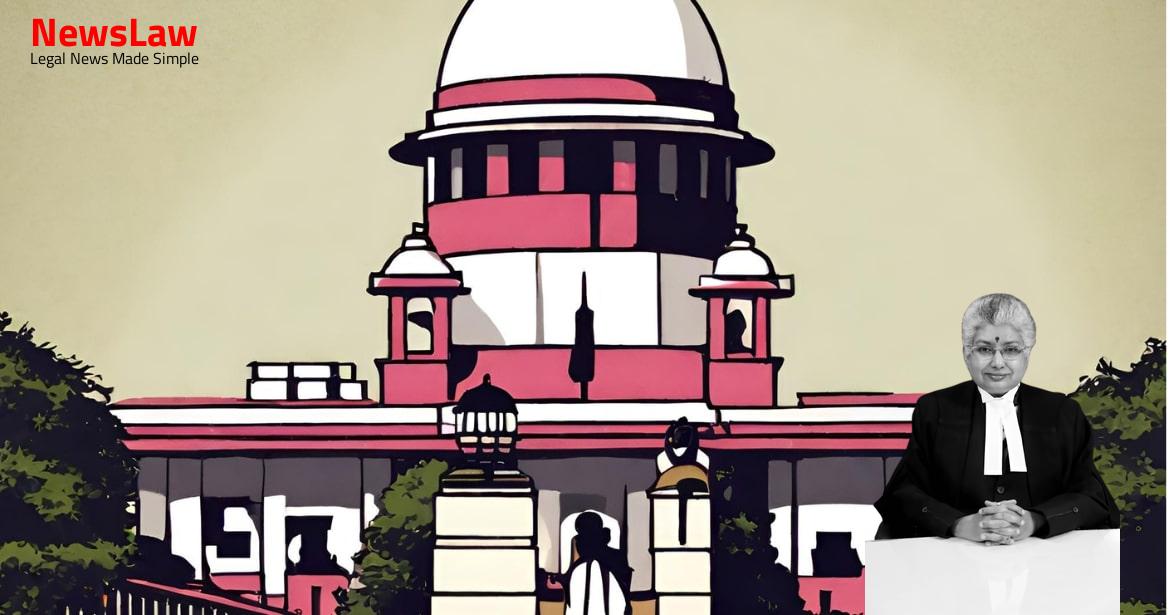Explore a detailed legal analysis on the implications of fraud and misrepresentation in contract law. This case summary dissects the court’s interpretation of Section 92 of the Evidence Act and the strict adherence to written instruments in contractual agreements. Gain valuable insights into how the absence of proof of fraud or misrepresentation can uphold the validity of a written document, setting a precedent for future contract law cases.
Facts
- Defendant No 1, Jose Francisco Pinto, sold a property to the plaintiff due to failure in discharging debts raised in 1962.
- The plaintiff sought possession and accounts from defendant No 1 who was given a portion of the property by a gift deed from their parents.
- A suit was filed claiming vacant possession of the house and directing defendants to render accounts of rent collected from other tenants.
- Defendant No 1 admitted that the plaintiff repaid two loans and filed a criminal case against him for cow theft.
- The plaintiff acquired the southern portion of the property from defendant No 1 through a registered sale deed after settling his creditors to save ancestral property.
- Oral evidence contrary to the sale deed terms was produced by the appellant, invalidating the sale deed.
- The first appellate court allowed appeals on grounds including the inconsistency of oral evidence with the sale deed terms.
- The second suit filed by respondents was dismissed on the basis of res judicata and validation of the sale deed.
- The Court found that the defendants failed to prove that the sale deed was obtained by fraud.
- The first suit was decreed on 24.2.1997.
- The evidence presented by the defendants did not rebut the duly registered sale deed (Ex.P/1) for Issue Nos. 2 and 3, which were decided in favor of the plaintiff.
Also Read: Interpretation of Will and Hindu Succession Act: Legal Analysis
Arguments
- The appellants relied on the judgment in Bellachi (Dead) by LRs v. Pakeeran to argue that the burden of proof for the genuineness of documents lies with the vendee.
- Mr. Dhruv Mehta, representing the respondents, contended that evidence was already on record regarding misrepresentation leading to fraud, thus supporting the amendment of pleadings.
- The appellants’ counsel argued that allowing the amendment of pleadings at the first appeal stage was not justified and that the second suit is barred by the principle of res judicata.
- Misrepresentation is considered as a facet of fraud
- The oral evidence of sale consideration presented by the plaintiff was rightly not accepted
Also Read: Analysis of High Court’s Decision on Registration Certificate and Onus of Proof in Sales Tax Case
Analysis
- The judgment discusses the presumption of correctness in a registered document being executed in accordance with the law.
- It mentions that Section 92 of the Evidence Act excludes oral evidence of any agreement or statement for contradicting the terms of a document, except in cases where the document is alleged to be a sham.
- The issue of amendment in the plaint and written statement is addressed, noting that such amendments cannot be disputed at a later stage once allowed by the court.
- The judgment highlights that the sale deed in question was executed and registered with the Sub-Registrar, and although respondent No.1 claimed ignorance, such ignorance did not amount to misrepresentation or fraud that would invalidate the sale deed.
- It discusses the importance of stating particulars of misrepresentation, fraud, or undue influence in the pleadings as per Order VI Rule 4 of the Code of Civil Procedure.
- The application of Section 92 of the Evidence Act regarding facts that may invalidate a document, such as fraud or lack of consideration, is also explained in the context of the case.
- The relationship between the parties as licensor and licensee or lessor and lessee is debated, especially considering the nature of the transaction and the evidence presented.
- The judgment addresses the admission of payment of debts by appellant No.1 and the circumstances surrounding the execution of the sale deed, emphasizing the lack of evidence of fraud or misrepresentation.
- Case laws and legal provisions, such as Section 25 of the Contract Act and Order VI Rule 2 of the Code of Civil Procedure, are referenced to support the arguments presented in the judgment.
- The summary concludes by highlighting that the First Appellate Court’s findings regarding the sale deed being a result of fraud or misrepresentation are deemed unsustainable based on the evidence and legal principles discussed.
- Section 25 of the Contract Act is being referenced
- This section is an important provision in the Act
- It specifies certain agreements that are considered void
- Understanding Section 25 is crucial for contract law compliance
- In Roop Kumar, the Court was dealing with an appeal from a suit for possession and rendition of accounts.
- Section 92 of the Evidence Act prohibits oral evidence to vary a contract that can be proved by a writing.
- The Court emphasized the strict rule that written instruments govern the contract, excluding other evidence to substitute, contradict, or alter them.
- There is no oral evidence to prove fraud, intimidation, illegality, or failure of consideration.
- Respondents cannot lead oral evidence to dispute the sale deed dated 14.9.1970.
- Judgments referred to by Mr. Mehta do not support his arguments.
- Feigned ignorance about the nature of the document does not constitute fraud.
- In the absence of fraud plea or proof, respondent No.1 is bound by the written document he admitted his signatures on.
- Findings of the First Appellate Court as affirmed by the High Court are set aside for being erroneous in law.
Also Read: Legal Analysis on Surrender of Tenancy Rights
Decision
- Special Civil Suit No 71/80/I is dismissed.
- Respondents are given two months’ time to vacate and hand over the vacant physical possession of the property in question.
- The appeal is allowed and the judgment and decree passed by the trial court in Special Civil Suit No 55/77/I is restored.
Case Title: PLACIDO FRANCISCO PINTO(D) BY LRS Vs. JOSE FRANCISO PINTO . (2021 INSC 581)
Case Number: C.A. No.-001491-001491 / 2007



